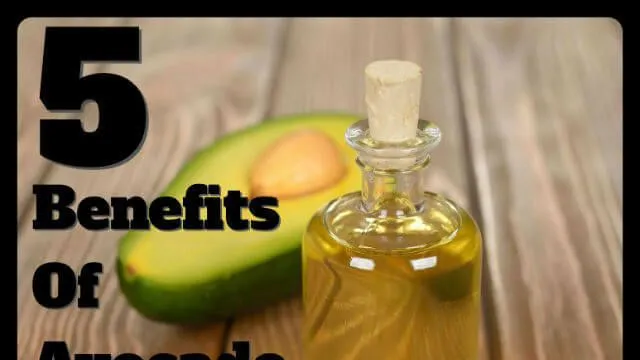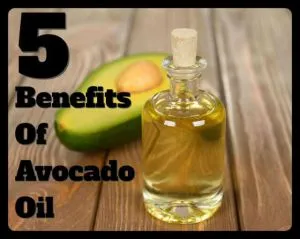
- Share on Facebook196
- Share on Pinterest
- Share on Twitter
Although it has not quite yet reached celebrity status like coconut oil, avocado oil is rapidly gaining momentum in natural health circles – and gaining popularity amongst those who are not fond of the taste of coconut oil.
Social media is abuzz with tales of the goodness of this pear-shaped, green fruit, as well. In fact, a quick search on Instagram reveals that the avocado hashtag has been used over two million times.
Gone are the days when avocados were only thought of as the main ingredient in guacamole. People are finally paying attention to this “fat” fruit that has, in the past, gotten a bad rap.
Vegetable butter
Known endearingly since Aztec times as “vegetable butter” – or “butter pear” – avocado fruit (Persea americana Mill.) originated in Central America but is now cultivated in a number of warm, sub-tropical, and temperate locations throughout the world. Depending on weight, the flesh of the avocado can contain up to 30 percent oil.
However, up until only recently, this oil has been used as a raw material mainly by the cosmetic industry, and has not been viewed as an edible oil. This is mainly due to the harsh extraction process used by some operations. Starting with poor quality and waste avocados, the oil is sometimes extracted using chemical solvents, before it is bleached and deodorized.
The good news is, there is another way to extract the oil in avocados – a way that starts with high quality avocados and ends up with a shimmering green oil loaded with health benefits. It is this oil that is gaining the attention of health-seekers across the globe.
Quality extraction process is essential
High-quality, edible avocado oil starts with high-quality, perfectly ripe fruit that is cold-pressed and naturally refined. By using a low-heat process, nutrients and fatty acids are protected – and the integrity of the oil is preserved.
Let’s get our “fats” straight
The same thing that has driven many away from avocado oil is, ironically, one of its very best attributes – its high fat content! Have you been avoiding avocados because you think they are fattening?
Many people dismiss nutrient-packed avocados due to their high fat content, and while they have more fat than any other fruit, it’s mostly monounsaturated fat, a healthy type of fat that’s been shown to increase HDL, or “good,” cholesterol and improve heart health.
The American Heart Association explains:
“[Monounsaturated fats] help reduce bad cholesterol levels in your blood and lower your risk of heart disease and stroke. They also provide nutrients to help develop and maintain your body’s cells. Monounsaturated fats are also typically high in vitamin E, an antioxidant vitamin most Americans need more of.”
Healthy fats support a healthy heart
So, here we have the first benefit of avocado oil – it’s high in monounsaturated fat. This oil is good for your heart.
The fatty acid profile of avocado oil is very similar to olive oil – it is high in oleic acid. An average-sized avocado contains the following:
- 76% monounsaturates (oleic and palmitoleic acids)
- 12% polyunsaturates (linoleic and linolenic acids)
- 12% saturates (palmitic and stearic acids)
Monounsaturated and polyunsaturated fats help to manage blood pressure and lower bad cholesterol levels – both of these things improve heart health and reduce your risk of heart disease.
According to a study published in the Journal of Ethnopharmacology, a diet rich in avocado oil changed levels of fatty acids in the kidneys, which caused the kidneys to regulate blood pressure in a positive way. Researchers were thus encouraged that avocado oil may play a big role in improving elevated blood pressure.
Bust stubborn belly fat
Furthermore, research indicates that a diet high in healthy fats can help bust stubborn belly fat. The American Journal of Clinical Nutrition found that eating monounsaturated fats increases satiety to help keep you feeling full for longer.
A March 2007 issue of the Journal for Diabetes explained that eating monounsaturated fatty acids along with each meal can actually help the body burn fat from the belly area.
Boost nutrient absorption
According to a study published in the Journal of Nutrition, carotenoids in avocado oil boost the absorption of carotenoids in food. Carotenoids (a type of antioxidant) are fat-soluble and depend on dietary fats for absorption. Avocado oil not only contains high amounts of unsaturated fatty acids, but also high amounts of carotenoids.
In a study, both high and low amounts of avocado oil enhanced absorption of alpha-carotene, beta-carotene and lutein (up to 15 times) in a salad, versus a salad without avocado oil.
Antioxidants in avocado oil may improve brain health, plus ward of cancer and eye disease
Cold-pressed avocado oil is loaded with antioxidants including vitamin E, alpha and beta-carotene, and lutein.
Research indicates that vitamin E may support a healthy heart and also reduce the risk of Alzheimers, breast, and prostate cancers, as well as eye diseases such as age-related macular degeneration.
Christian Cortés-Rojo, a researcher at Universidad Michoacana de San Nicolás de Hidalgo in Morelia, Mexico, believes that avocado oil could be a very helpful tool in promoting good health at the cellular level. Because of its ability to fight free radicals, avocado oil can help promote brain health by penetrating cells (unlike other fruits and vegetables), to protect the cell powerhouse, the mitochondria.
 The human body converts alpha and beta-carotene into vitamin A – an essential nutrient that is vital for healthy skin, mucous membranes , eye health, strong bones, and the immune system. Lutein, another powerful antioxidant, protects both the eyes and the heart.
The human body converts alpha and beta-carotene into vitamin A – an essential nutrient that is vital for healthy skin, mucous membranes , eye health, strong bones, and the immune system. Lutein, another powerful antioxidant, protects both the eyes and the heart.
Skin health
Avocado oil is loaded with healthy plant proteins, and along with its healthy fats can greatly benefit skin health. In addition to its other benefits, avocado oil contains sterolin, which has been shown to soften the skin and reduce the appearance of age spots.
Of course, the antioxidants in this potent oil can also help heal sun-damaged and dry skin. When applied to the skin, avocado oil can help promote the production of collagen and reduce the signs of aging. Avocado oil also contains lecithin and potassium that can keep your skin and hair strong and vibrant.
In addition, avocado oil is beneficial for treating a number of skin conditions, including eczema and psoriasis. In fact, a study published in the journal, Dermatology, found that a mixture of vitamin B12 and avocado oil helped to relieve the symptoms of psoriasis over a 12-week study period.
Patients who were treated with vitamin E cream showed minimal benefits only for the first 4-week period of the 12-week trial. As a result, researchers feel that avocado oil and B12 may be a useful long-term treatment option for persons suffering with psoriasis.
Using avocado oil
Avocado oil has a pleasant taste, and for those who may find coconut oil too strong, it is a great replacement oil for everyday use. You can use it like you would any other oil – for drizzling, dressings, stir-frying, searing and sauteing. The great news is that it has a high smoke point and is very stable.
Quality matters
When shopping for avocado oil, look for an extra virgin, unrefined avocado oil. Unrefined avocado oil is dark green and has a floral smell with a mild flavor. The only avocado oil we use in our kitchen is from Ava Jane’s Kitchen. Try a bottle for free today!
Sources:
http://www.avocadosfrommexico.com/nutrition-facts/
http://www.olivado.com/studies3.htm/
http://www.olivado.com/studies4.htm/
http://www.avocadocentral.com/
http://ods.od.nih.gov/factsheets/VitaminE-HealthProfessional/
http://jama.jamanetwork.com/article.aspx?articleid=1810379/
http://www.healthcommunities.com/vitamins-minerals-supplements/alpha-carotene.shtml/
- Share on Facebook196
- Share on Pinterest
- Share on Twitter

